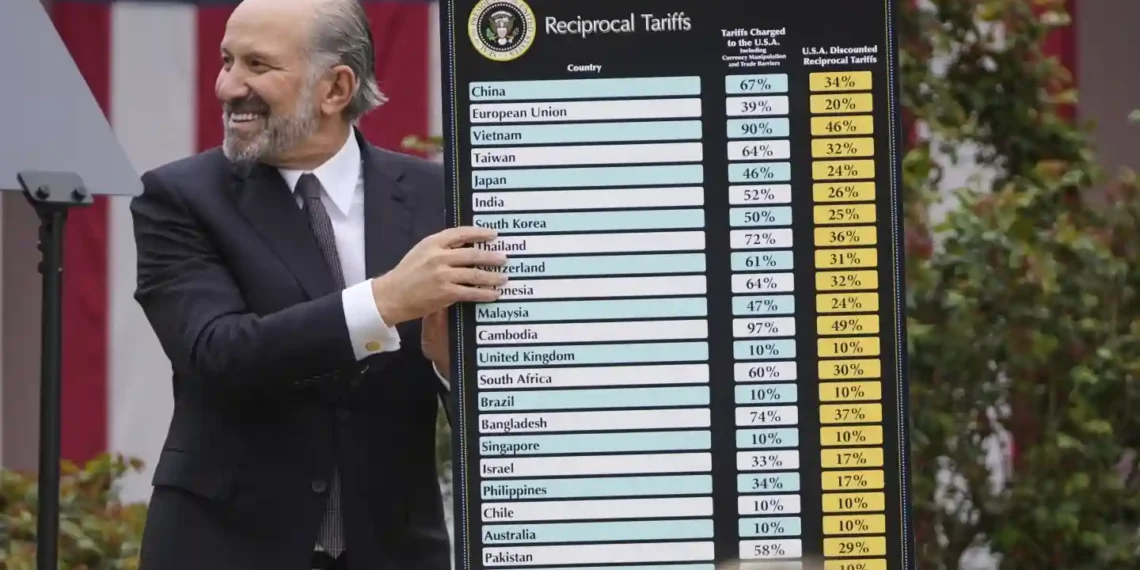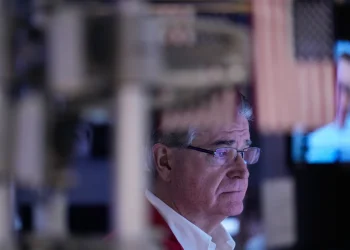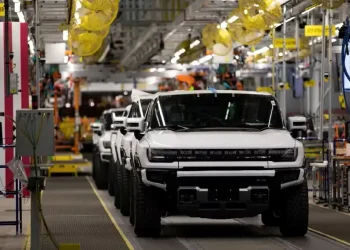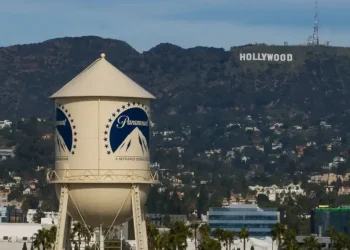Trump’s Trade War Shakes the Global Economic Order—Even as U.S. Reigns Supreme
By launching a full-scale trade war, President Donald Trump is reshaping the global economic landscape—and not everyone’s convinced it’s for the better.
President Donald Trump has thrown global trade into turmoil. With a fresh wave of tariffs taking effect at midnight Wednesday, his administration has targeted dozens of countries, escalating a global trade conflict that’s already rattled financial markets and stirred fears of a potential recession.
What’s surprising to many economists is the timing. The U.S. economy—already the world’s strongest—was in excellent shape when Trump began his tariff crusade. Other major economies were slowing, yet Trump accused them of unfair practices and launched a broad attack on what he sees as a rigged system.
“There’s a deep irony in Trump claiming the U.S. is being treated unfairly when it’s outperforming the rest of the world,” said Eswar Prasad, a trade policy professor at Cornell University. “Even more ironic—these tariffs could end up damaging the very economy he’s trying to protect.”
To Trump and his advisers, tariffs are a cure-all: a way to protect American jobs, boost domestic manufacturing, punish unfair trade partners, and increase federal revenue. From foreign cars to Chinese electronics, few imports have been spared.
In his most aggressive move yet, Trump introduced a blanket 10% “baseline” tariff on most countries, while slapping punitive rates—some as high as 50%—on those he deemed bad actors. China, unsurprisingly, took the brunt with a total of 34% in tariffs.
Trump defends these measures as overdue justice for decades of economic “mugging” by allies and adversaries alike. “They’ve taken so much of our wealth away from us,” he declared during a White House celebration of the tariffs.
But critics say this view is outdated and economically flawed. While some countries do impose higher tariffs or offer subsidies to their industries, the U.S. remains the world’s second-largest exporter—behind only China—with $3.1 trillion in exports last year.
A key part of Trump’s argument centers on trade deficits. In 2024, the U.S. trade deficit hit $918 billion—the second-highest on record. To Trump and his trade adviser Peter Navarro, this is proof of widespread “cheating.”
But economists see it differently. They argue trade deficits are not inherently bad. In fact, the U.S. economy has nearly quadrupled over the last 50 years—despite running a deficit nearly every year.
“Trade deficits aren’t a sign of weakness,” said Maurice Obstfeld, former chief economist at the IMF. “They’re often a reflection of a strong economy that imports more because it consumes more.”
The truth, experts say, is simpler: Americans love to spend and save very little. That imbalance fuels demand for imports and widens the trade deficit—not necessarily foreign manipulation.
Jay Bryson, chief economist at Wells Fargo, put it bluntly: “It’s not like the rest of the world has been ripping us off. It’s because we don’t save enough.”
Ironically, this dynamic makes the U.S. incredibly attractive to foreign investors. In 2023, direct foreign investment into the U.S. totaled $349 billion—more than any country except Singapore.
While Trump touts tariffs as a tool to bring back U.S. factory jobs, history paints a more complex picture. After China joined the World Trade Organization in 2001, the U.S. lost nearly 3 million manufacturing jobs—but automation likely played just as large a role.
Trump’s critics warn that tariffs may backfire. Since announcing the latest round of import taxes, the S&P 500 has dropped 12%, a sign that investors are nervous about where this trade war is headed.
“The only way tariffs shrink the trade deficit is if they also scare away investment,” said economist Barry Eichengreen. “That would be a disaster.”
Dani Rodrik of Harvard says a smarter approach would be targeted industrial policy with strategic tariffs—not sweeping measures that alienate allies and create uncertainty.
“Trump’s trade policy,” Rodrik said, “throws up a lot of chaos and delivers very little in return. It’s a terrible policy, all in all.”
This article was rewritten by JournosNews.com based on verified reporting from trusted sources. The content has been independently reviewed, fact-checked, and edited for accuracy, neutrality, tone, and global readability in accordance with Google News and AdSense standards.
All opinions, quotes, or statements from contributors, experts, or sourced organizations do not necessarily reflect the views of JournosNews.com. JournosNews.com maintains full editorial independence from any external funders, sponsors, or organizations.
Stay informed with JournosNews.com — your trusted source for verified global reporting and in-depth analysis. Follow us on Google News, BlueSky, and X for real-time updates.














